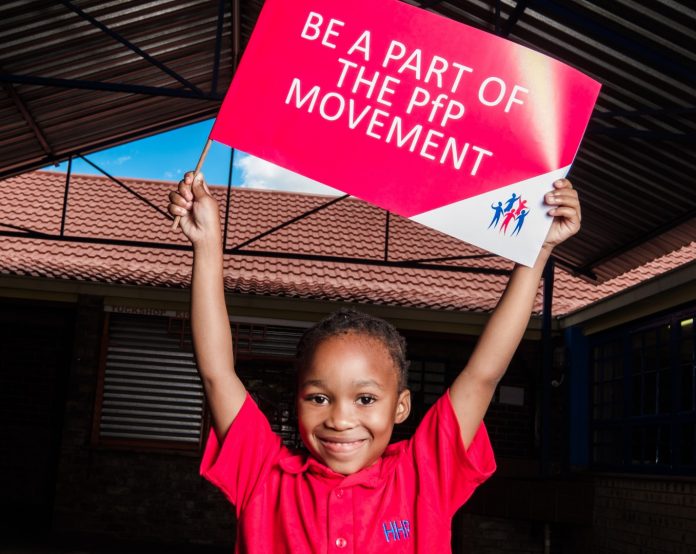School principals in South African public schools encounter bottlenecks in fulfilling their everyday tasks. These challenges are compounded by the fact that school teachers are often encouraged to take leadership positions based on their positive teaching careers rather than leadership capabilities. To reference the academic literature of Kirori and Dickinson (2020), “…public school principals assume office without adequate leadership development training.’’ There is a clear need to support the development of school leadership in South African public schools.
In support of this, Citizen Leader Lab, formerly Symphonia for South Africa, launched its flagship leadership development programme known as Partners for Possibility (PfP) in 2010 to mitigate leadership challenges. In its 12 years, the PfP programme has made strides in mobilising various institutions in order to improve education in South African communities. Unlike other business in education partnership models that provide leadership training programmes to school principals only while business leaders partake in these programmes either as sponsors, facilitators, and/or as mentors to principals, the PfP model focuses on leadership development for both the school principal and business leader in a sustainable way.

PfP partners principals with business leaders in a 12-month collaborative and practical leadership journey. Through these partnerships, principals gain the skills needed to confidently engage and lead relevant stakeholders in order to address the challenges in their respective schools. The programme features the elements of professional coaching, world-class training workshops, practical leadership development exposure in a marginalised South African community and networking opportunities for principals and business leaders.
It is widely accepted that collaboration is needed to address intractable, multi-faceted social and environmental issues in sectors such as education. In particular, cross sector collaboration is at the core of the PfP programme. Through the PfP programme, school principals and business leaders share information, resources, activities and skills to attain mutual outcomes that could not be accomplished by organisations in one sector distinctly. Cross-sector collaboration between school principals and business leaders is vital as a strategy for addressing society’s complex public education challenges that require multi-stakeholder collaborations. Cross-sector collaborations are deemed the best method when dealing with social challenges and inspiring innovation, as they create social value in an attempt to bring about solutions within the education frontier.
The PfP model utilises a transformative model. Transformational partners pursue a shared vision by combining their knowledge and resources in activities that lead to changes in the thinking and practices of people and organisations. The programme is anchored in facilitating learning partnerships between principals and business leaders that are mutually beneficial and respectful.
Business has an essential role to play in shaping the values, practices, economic survival of the community and enhancing leadership capabilities of school principals. Business is a force for good and has more to give than merely money, especially in public schools.
Since inception, the PfP programme has developed and extended its footprint to all nine of South Africa’s provinces. Its efforts have not gone unrecognised, having been included in the 2020 Geneva rankings of the world’s Top 500 NGOs, as wells as being named a WISE award winner in 2018. These accolades are testament to the importance of the work in enhancing leadership capabilities.
To date PfP has more than 1,700 business in education partnerships across South Africa, and in 2022 the PfP programme aims to reach a further 200 schools. Business leaders are urged to join the programme and significantly contribute towards creating #TheFutureWeWant for our country.






